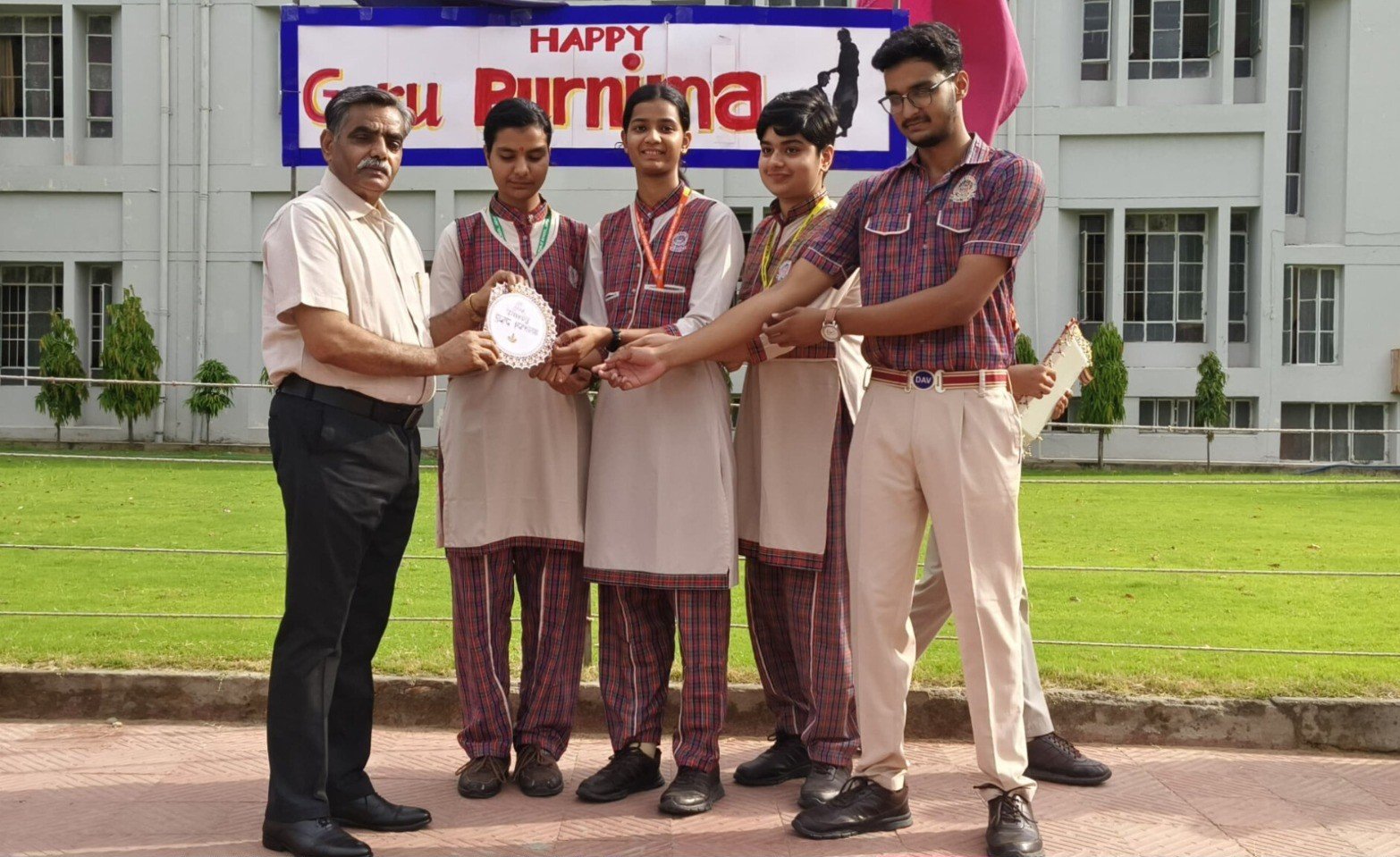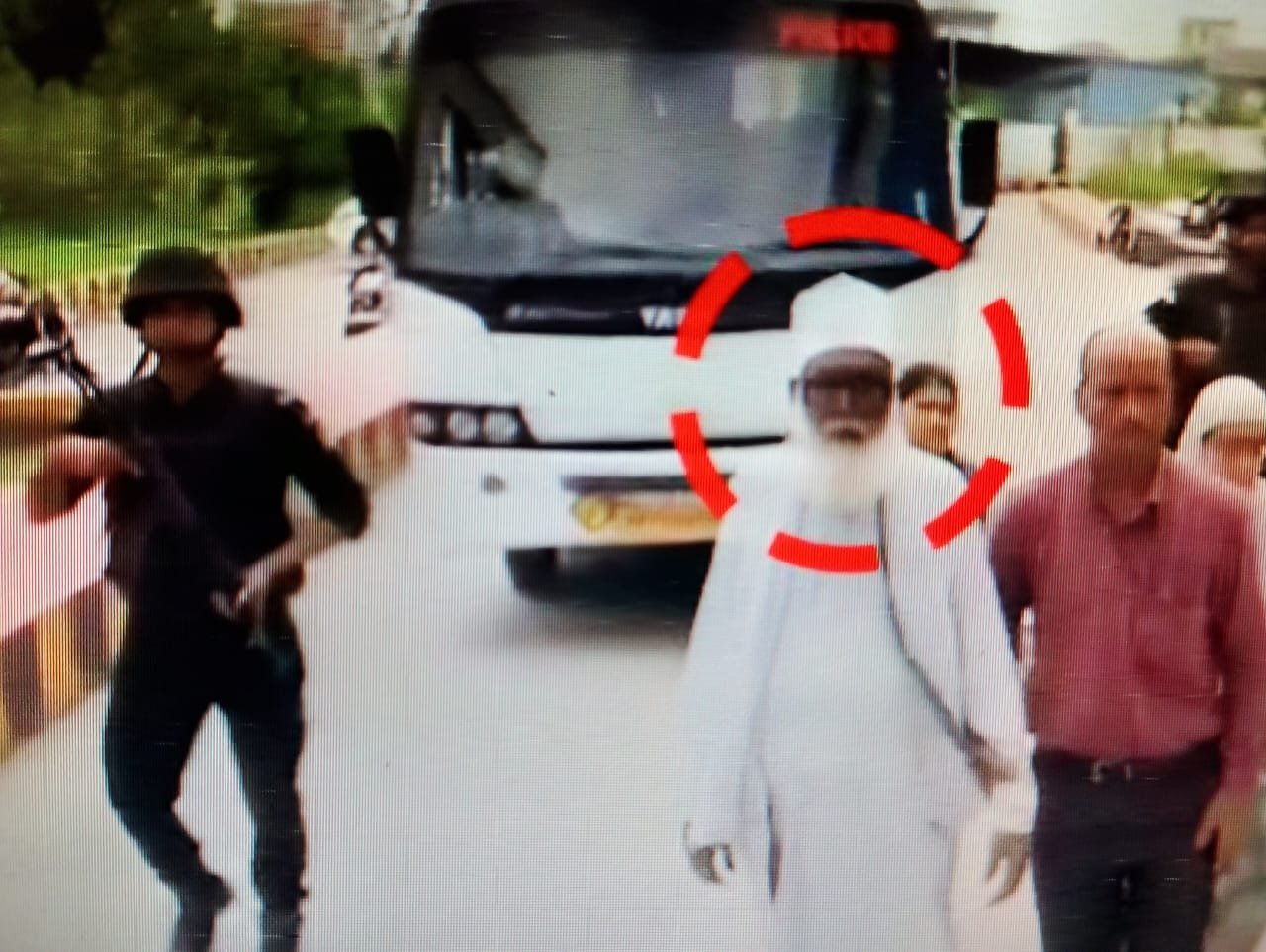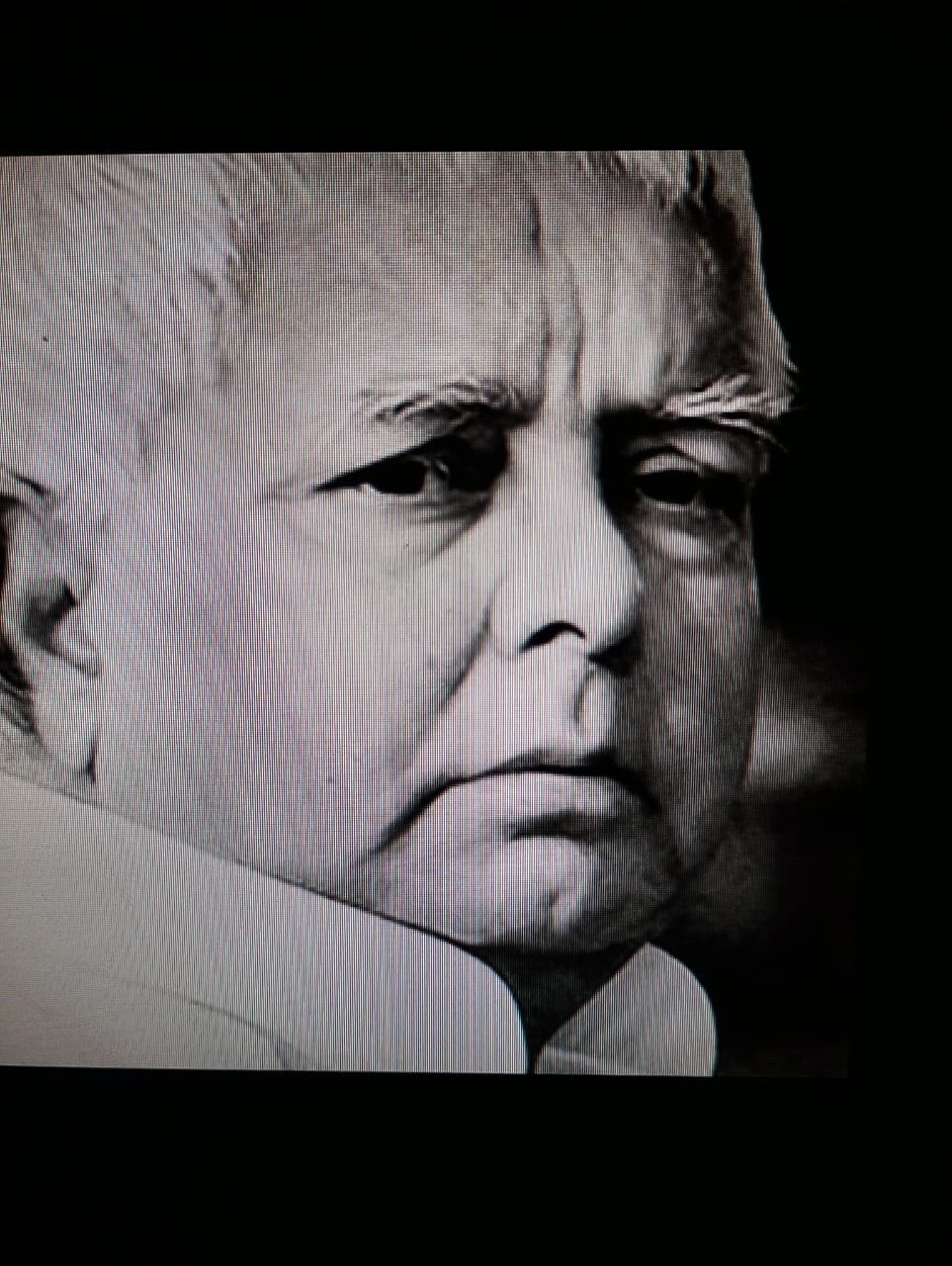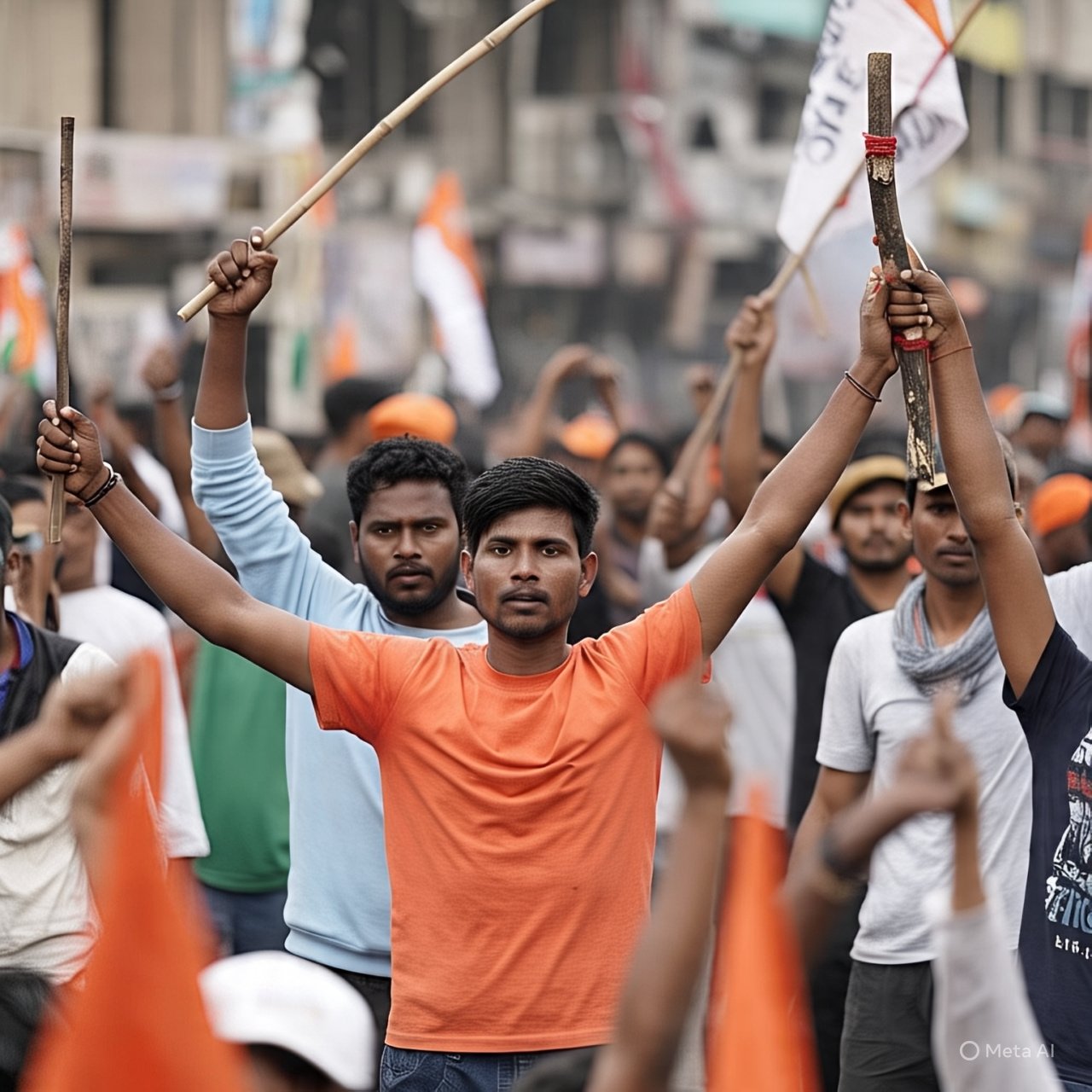India
On reconnaissance, the accused Parliament breacher knew where to hide smoke cans

The disturbing events that occurred in the Lok Sabha yesterday have drawn attention to security flaws in the legislature
New Delhi: Manoranjan D, a Mysuru resident, discovered a critical weakness in the security measures of parliament months before he barged into the Lok Sabha chamber brandishing a smoke-colored canister. He and his colleague, Sagar Sharma, took advantage of this weakness to cause mayhem in the House yesterday.
Police sources claim that Manoranjan admitted during interrogation that he was there for the Budget session at the former parliament building. This was a reconnaissance trip to learn about the security measures put in place. He discovered on this visit that although people visiting the parliament are frisked several times, their shoes are not examined.
Manoranjan D and Sagar Sharma concealed colored smoke canisters within their shoes yesterday. After that, they head to the visitors’ gallery using passes that were provided by BJP MP Pratap Simha’s office. They evaded detection by passing the security tests. Afterwards, they leaped into the room from the visitors’ gallery and released the colored smoke before being overcome.
In his reply to the Speaker, the Mysuru MP clarified that Manoranjan’s father had asked him for a visitor’s pass. Notably, members of parliament frequently set up passes for constituents to attend and observe how the legislature operates.
The four people detained in this regard have informed police that their intention was to draw attention to the problems of farmers, unemployment, and instability in Manipur.
According to the sources, police have also discovered that Sagar Sharma visited Delhi in July for a follow-up inspection during the monsoon season. Since he was unable to enter Parliament, he concentrated on the security measures outside.
The disturbing events that occurred in the Lok Sabha yesterday have drawn attention to security flaws in the legislature and the grave repercussions that could result from them. The 21st anniversary of the 2001 attack on the Parliament, which left nine people dead, fell yesterday. By the way, terrorist Gurpatwant Singh Pannun from Khalistani had threatened to launch an attack by December 13 at the latest. Many have emphasized how, even with maximum alert, the security infrastructure was unable to stop the breach.
Manoranjan, Sagar Sharma, Neelam Azad, and Amol Shinde—who demonstrated outside Parliament with colored smoke—have all been taken into custody. The Unlawful Activities (Prevention) Act and the IPC, two anti-terror laws, are used to prosecute the four. Vicky Sharma, another accused, and his spouse, Rakhi, are in custody. Lalit Jha, the accused, left the scene and is still at large.
Accident
Vadodara Bridge Tragedy: Death Toll Rises to 19, Two Still Missing – Rescue Operations Continue in Mahisagar River

Contents
Vadodara (Gujarat), July 11, 2025
A heart-wrenching incident has shaken Gujarat as the Gambhira–Mujpur bridge over the Mahisagar River in Vadodara district collapsed unexpectedly. So far, 19 people have lost their lives, while 2 individuals remain missing. Rescue teams have been relentlessly working for the third consecutive day in the hope of saving lives and retrieving the missing.
How Did the Tragedy Happen?
The incident occurred on the morning of July 9, when several vehicles were crossing the bridge. Suddenly, a major section of the bridge collapsed into the river, dragging with it two trucks, an SUV, a pickup van, an auto-rickshaw, and two motorcycles. The bridge was nearly 40 years old, and multiple complaints had been made about its deteriorating condition.
Victims Identified, Families Devastated
So far, 18 bodies have been recovered from the debris, while one critically injured person succumbed to injuries at the hospital, taking the total death toll to 19. Among the victims were women, children, and entire families who were out on a pilgrimage for Guru Purnima.
Search Operations Still Underway
Rescue efforts by NDRF, SDRF, and fire brigade teams are still ongoing. The operation is facing major challenges due to the river’s depth, strong current, and over 10 feet of thick mud, making it difficult to access submerged vehicles. Cranes, boats, and divers are being deployed to find the two missing persons.
Government Response and Action
In the wake of the incident, the state government swiftly suspended four engineers and has ordered a detailed investigation into the bridge collapse. The government has also announced financial compensation of ₹2 lakh to the families of the deceased and ₹50,000 for the injured.
Public Outrage and Unanswered Questions
Local residents claim the bridge was already in a dangerous condition, but authorities failed to take timely action. Media reports reveal that just days before the tragedy, a journalist had posted a video highlighting the poor state of the bridge, which went ignored.
This incident has once again exposed the negligence and oversight in maintaining public infrastructure. Behind every number is a grieving family – a shattered home, a mother who lost her child, a father never to return. The need of the hour is strict accountability, immediate structural audits, and long-term corrective measures — so that such a tragedy never repeats itself.
Education
Guru Purnima Celebration at DAV CPS, Jaipur – A Heartfelt Tribute to Guiding Lights

Jaipur | July 10, 2025
In an atmosphere filled with devotion, gratitude, and inspiration, DAV Centenary Public School, Vaishali Nagar, Jaipur celebrated Guru Purnima with heartfelt enthusiasm on Thursday, July 10. The event turned out to be more than just a celebration—it was a beautiful expression of love and respect for the teachers who illuminate the path of learning for their students.
The morning assembly set the tone for the day with the soothing sounds of shlokas dedicated to gurus, creating a spiritually charged environment across the campus. The essence of the celebration was beautifully captured in a speech that explained the cultural and historical roots of Guru Purnima, reminding everyone of the powerful legacy of the guru-shishya tradition.
Students poured their hearts out through soulful poems, melodious songs, and inspiring speeches, each echoing a shared sentiment—deep respect for their mentors. A mesmerizing classical dance performance, portraying devotion and reverence towards gurus, stole the spotlight and left the audience spellbound.
One of the most touching moments of the day was when the students presented a handmade gratitude card to Principal Mr. A.K. Sharma, who has been a constant source of wisdom and encouragement. In his address, Mr. Sharma reflected on the irreplaceable role of teachers in shaping young minds and urged students to stay rooted in values, discipline, and lifelong learning.
“The presence of a guru in one’s life is a blessing,” he said. “True success comes not just from knowledge, but from the humility to keep learning.”
The event concluded on a thoughtful note, leaving everyone—teachers, students, and staff—feeling more connected, more thankful, and more inspired. Guru Purnima at DAV CPS was not just an event, but an experience that reminded all of the timeless role of a teacher—not just in the classroom, but in life.
Crime
Indian Nurse to Be Hanged in 6 Days in Yemen — The Heartbreaking Story of Nimisha Priya, Who Gave Her Partner a Sedative That Turned Deadly

Contents
Thiruvananthapuram / Yemen | July11, 2025
Once a hopeful young nurse from Kerala, Nimisha Priya is now counting her final days in a Yemeni prison. Her crime — administering a sedative that led to the death of her Yemeni business partner, Alkhader Al-Omari. Her punishment — execution by hanging on July 13, 2025.
But behind this grim sentence lies a story much more complicated — one filled with ambition, control, fear, and a moment that changed everything.
A Nurse with Dreams, and a New Life Abroad
Nimisha Priya wasn’t a criminal when she left India. She was a caregiver — a skilled nurse with dreams of building a better life. In Yemen, she found work, opened a clinic, and partnered with Alkhader Al-Omari, a local man who helped her navigate the foreign land.
But what started as a partnership slowly turned into a prison.
Trapped in a Toxic Relationship
Reports from the time suggest that Al-Omari soon took control of more than just the clinic. He allegedly confiscated Nimisha’s passport, isolated her, and began mentally and physically abusing her. He took over her earnings and threatened her when she talked about returning home to India.
Far from family, friends, or legal protection, Nimisha felt completely trapped — her life and freedom in the hands of a man who, she believed, would never let her go.
The Night It All Changed
Then came that fateful night in 2017.
According to court documents, Nimisha gave Al-Omari a high dose of a sedative. Her stated intention was not to kill him, but to make him unconscious, retrieve her passport, and escape. But the sedative proved too strong — Al-Omari died.
Panic set in. Nimisha reportedly dismembered his body and tried to hide the evidence in a water tank. A gruesome and desperate act that, once discovered, left her no room to explain.
A Death Sentence, and a Race Against Time
The Yemeni court ruled the act pre-meditated murder and sentenced Nimisha to death by hanging.
For years, legal teams in India and Yemen pleaded for clemency. Activists pointed to the abuse she suffered, to the desperation of a woman with no escape, and to her otherwise clean record. Her mother, in tears, begged the Yemeni family for forgiveness, hoping for a “Diya” — blood money — a custom in Yemen that allows the victim’s family to pardon the accused.
But that pardon never came.
Only Six Days Left…
Today, Nimisha Priya is a prisoner not just behind bars, but in time. With just six days left, she awaits her execution. Her mother is still trying — hoping against hope — for one final miracle.
Meanwhile, millions in India are asking:
Was she a murderer? Or a victim of circumstance, trying to survive in a world where no one came to help?
Beyond the Verdict
This is not just Nimisha’s story. It’s the story of thousands of Indian women who work abroad, often with little protection. It’s the story of how desperation can drive someone to the edge, and how the law — especially in foreign lands — rarely leaves room for the grey in between.
Crime
India’s Biggest Scam You Never Heard Enough About — ₹49,000 Crore Vanished, 5 Crore Lives Shattered, And Now… One Big Arrest

Contents
Lucknow | July 11, 2025
In what could be one of the biggest financial frauds in India’s history, the curtain has finally started to lift. The Uttar Pradesh Economic Offences Wing (EOW) has arrested Gurnam Singh (69) — the key director behind Pearls Agrotech Corporation Ltd (PACL) — from Punjab’s Ropar district.
His crime? Allegedly orchestrating a ₹49,000 crore Ponzi scheme that duped nearly 5 crore investors across India.
This wasn’t just about money. It was about dreams sold and lives broken — mostly belonging to farmers, small shopkeepers, daily wage workers, and middle-class families who trusted PACL with their hard-earned savings.
The Dream That Turned Into a Trap
PACL promised affordable land investments. The plan sounded simple — invest now, and in a few years, you’d either get a valuable land parcel or high returns.
But behind the glittering promises lay a hollow scam.
No land. No returns. Just a web of false paperwork and delayed answers — until one day, even those stopped.
EOW’s New Face — Tough, Accountable, and On a Mission
What’s changed now? The UP EOW has introduced a “Reward and Punish” system to fast-track major financial crime probes like this:
- Monthly performance tracking of officers
- Fast-track teams deployed in every district
- Seizure of properties under Section 111 of the new BNS law
- Helplines, awareness drives, and social media alerts for public support
This new system has already led to 14 arrests, including key names linked to the ₹250 crore V-Care scam and this massive PACL fraud.
This Isn’t Just About Money — It’s About Betrayal
One woman investor said it best:
“We saved for our children’s education, for their future. Now we run around courts and collector offices, with nothing to show for it.”
Behind every number in this scam — there’s a family. A broken promise. A shattered future.
The Bigger Picture
This arrest proves one thing: Justice may be slow, but it’s not blind. ₹49,000 crore didn’t just disappear — it was siphoned off through trust and illusion. The real question now is:
Will India’s legal system bring back justice and money for 5 crore defrauded citizens? Or will this case too fade into the dust of files and forgotten hearings?
India
India Crosses 1.46 Billion — But Why Are People Having Fewer Children? UN Report Reveals the Changing Math of Population

Contents
New Delhi | July11, 2025
There was a time when India’s growing population was considered the country’s biggest problem. Slogans like “Hum Do, Hamare Do” (We Two, Our Two) echoed across walls and radio channels. But times have changed — and so has the narrative.
According to the latest report by the United Nations, India’s population has officially crossed 1.46 billion, making it the most populous nation on the planet. But what’s surprising is this: India’s fertility rate — the number of children a woman has — is steadily declining.
Today, the average Indian woman is giving birth to just two children, which is right around the replacement level needed to maintain a stable population.
So, if fewer children are being born, why is the population still rising? What’s really happening behind these numbers?
This Isn’t Just About Statistics — It’s a Social Shift
There was a time when India was labelled a “population bomb.” Now, several Indian states — including Kerala, Delhi, Tamil Nadu, Karnataka, and Punjab — have fertility rates below replacement level.
This isn’t happening due to force or law — but through education, awareness, and personal choice. It’s a quiet revolution led by society itself.
India is now slowly moving towards population stability, something once thought to be decades away.
Women Are Leading This Change
Behind these shifting numbers is a bigger story — the story of India’s changing women:
- They’re more educated
- They’re joining the workforce
- They’re marrying later
- And they’re making thoughtful, conscious decisions about motherhood
Children are no longer just a tradition — they’re a planned responsibility.
India’s Population Will Peak by 2060 — Then Begin to Decline
Experts say this population growth is the result of demographic momentum — a situation where the current large number of young people continues to reproduce, even as fertility falls.
But once this momentum slows, India’s population will gradually start to decline — marking the beginning of a new era.
That means: the country that is the youngest today may one day become one of the oldest nations in terms of age demographics.
The Real Question Now: What Will We Do With So Many People?
- Can we create enough jobs for all?
- Will our education and healthcare systems be able to handle the pressure?
- And when the population begins to shrink, who will take care of the elderly?
India now needs smart policies, not just to control numbers — but to improve the quality of its population. Because in the long run, it’s not just about how many people we have, but what those people can do.
The Population Game Has Changed
This UN report isn’t just another document filled with stats — it’s a signal that India is entering a new demographic era.
The country is slowly shifting its focus from “how many” to “how capable” — and that’s where real progress begins.
Crime
Shocking Crime in Gurugram: Rising Tennis Star Radhika Yadav Shot Dead — Father Pulls the Trigger Over Career Dispute

Contents
Gurugram | July 11, 2025
In a deeply disturbing incident that has sent shockwaves across Gurugram, 21-year-old national tennis player Radhika Yadav was shot dead in her own home on Sunday morning. The most heartbreaking detail? The shooter was none other than her own father.
Radhika, who had made a mark at the national level in the past two years and had recently been selected for an international tournament, was the pride of her neighborhood. But her promising journey was cut short not by a stranger, but by someone who was supposed to protect her — her father, Ravindra Yadav.
What led to the tragic shooting?
According to initial police reports, Ravindra Yadav confessed during interrogation that he shot Radhika “in a fit of rage.” Investigators reveal that Radhika was passionate about her tennis career and was preparing to travel abroad for further training and competitions — a plan that reportedly didn’t sit well with her father.
Sources close to the family say Ravindra had always been a strict and conservative man. He was uncomfortable with Radhika’s growing independence and career choices. Tensions had been simmering within the household for months. On Saturday night, a heated argument broke out, and by morning, the unthinkable had happened.
Community in shock
The neighborhood is still reeling from the tragedy. Neighbors describe Radhika as a humble, focused, and highly disciplined young woman.
“She would be out for practice every morning by 5 AM. That kind of dedication is rare these days,” said one neighbor, struggling to hold back tears.
Father arrested on the spot
Police arrested Ravindra Yadav at the scene. He has been charged with murder under relevant sections of the IPC. Radhika’s mother, who was reportedly present in the house during the incident, is in deep shock and under medical observation.
A nation reflects: Are dreams still a crime for daughters?
Radhika’s brutal murder has sparked widespread outrage and grief. It has reignited an uncomfortable question — are daughters still being punished for dreaming big?
When a father turns into the very obstacle his daughter must overcome, it’s a mirror held up to our society.
Latest News
Swiss Accounts, Conversion Racket, and Trapped Innocents — This Wasn’t a Saint, He Was a Predator

Contents
Uttar Pradesh | 11 July 2025
By Credent TV News Desk
He walked with a staff, wore a long beard, and people in the village folded their hands in reverence at his feet. But behind that saintly image was a man running one of the darkest religious conversion syndicates India has ever seen. His name: Changur Baba. Real name: Jalaluddin. Age: 70. And his list of crimes? Long enough to outlive his age.
A Full-Fledged Conversion Industry
Recent investigations by Uttar Pradesh STF and ATS have uncovered a deeply disturbing reality. This so-called baba wasn’t just chanting prayers — he was masterminding an elaborate system of trapping women and girls into forced religious conversions.
His targets? Minor girls, widows, and poor women — the most vulnerable in society.
His method? Manipulation, emotional blackmail, fake promises of marriage, and when that didn’t work — threats and money.
What’s even more shocking — Baba had a conversion training manual. A complete system of how to trap girls from different religions: what to say, when to act affectionate, and when to threaten.
Fixed rates were decided for each conversion. This wasn’t faith — it was business.
Crores in Swiss Bank Accounts
If you thought this racket was operating on a small scale, think again. Investigators discovered over 40 bank accounts linked to Changur Baba, including several in Switzerland. The total transactions? A staggering ₹106 crore (over $12 million).
Where did the money come from? Sharjah, Dubai, and other Islamic countries, according to the STF.
This was not just a religious racket — it was internationally funded and systematically operated.
Arrested — But the Net Is Wider
On 5th July, STF arrested Changur Baba along with his close aide, Neetu alias Nasreen, from a hotel in Lucknow. During interrogation, it was revealed that the network stretched far — from Mumbai to Dubai.
Now, the Enforcement Directorate (ED) has joined the investigation. A money laundering probe is underway, and authorities are preparing to seize assets and properties linked to the illegal trust and conversions.
A Saint No More
Changur Baba may be behind bars now, but the emotional scars he left on thousands of innocent women can’t be counted in case files or spreadsheets.
He exploited faith to deceive, used trust to destroy, and wore religion as a mask for crime.
As one STF officer said:
“He wasn’t a saint in White. He was a predator in disguise.”
The villagers who once bowed before him now raise questions. How did this go on for so long? And how many more like him are out there?
There’s an old saying:
“When fake saints rise, truth becomes the biggest casualty.”
But this time, the law has spoken. And Baba’s mask has finally fallen.
Bihar
Lalu Yadav Faces Major Setback: HC Accepts CBI’s Plea to Increase Sentence in Fodder Scam Case

Contents
By Credent TV News Desk
Patna | July 9, 2025
In a major blow to RJD chief and former Bihar Chief Minister Lalu Prasad Yadav, the High Court has accepted the Central Bureau of Investigation’s (CBI) plea to enhance his sentence in the infamous fodder scam case. This ruling could extend Lalu’s prison term significantly.
What’s the case all about?
The fodder scam, which shook the country in the 1990s, involved large-scale embezzlement of government funds in the name of procuring fodder for livestock in Bihar. Crores of rupees were siphoned off using fake bills and fictitious expenses. Lalu Yadav has already been convicted in multiple related cases and has served time in jail. However, this latest development revolves around increasing the length of his sentence.
What did the CBI argue?
The CBI had approached the High Court stating that the lower court had awarded Lalu a lenient sentence considering the seriousness of the crime. According to the agency, a harsher punishment would be more appropriate given the scale of corruption and betrayal of public trust. Agreeing with this argument, the High Court has now permitted an increase in Lalu Yadav’s sentence.
How did Lalu Yadav and his party react?
The RJD camp has gone into damage control mode. Senior leaders have called this move a “political conspiracy” and declared their intent to challenge the verdict in the Supreme Court. While Lalu Yadav himself has not issued a public statement, sources close to him reveal that he is deeply disappointed and disturbed by the judgment.
What’s next?
This ruling could reshape the political landscape for RJD. The spotlight is now on Tejashwi Yadav—will he now fully take over the party’s reins? Meanwhile, rival parties like BJP and JD(U) have hailed the verdict as a strong stance against corruption and a win for accountability.
Expert Take:
The High Court’s decision is being seen as a symbolic moment in the fight against high-level corruption. For a veteran leader like Lalu Yadav to face an extended sentence sends a powerful message: no matter how old the case, justice does not forget.
India
Indian Air Force Jaguar Fighter Jet Crashes in Rajasthan’s Churu: Pilot and Co-Pilot Killed, Wreckage Scattered Across Village

A heart-wrenching tragedy unfolded on Tuesday morning in Rajasthan’s Churu district, where an Indian Air Force Jaguar fighter jet crashed during a routine sortie, claiming the lives of both the pilot and co-pilot. The crash was so severe that the aircraft broke into pieces, scattering debris over a large area and leaving behind the mutilated remains of the officers across different parts of the village.
The incident took place in a quiet rural area of Churu, where the calm of the morning was shattered by a loud explosion. Villagers rushed out of their homes to find smoke billowing from the wreckage scattered across their fields and streets. The blast was followed by chaos as flames engulfed parts of the crash site, and panic gripped the locals.
According to eyewitnesses, the jet appeared to be flying unusually low and suddenly caught fire mid-air. Moments later, it crashed into the ground and exploded with a thunderous blast, sending plumes of smoke and a pungent smell of burning metal into the air. The debris rained down on homes, roads, and farmlands, turning the entire area into a scene of devastation.
Upon receiving the alert, teams from the Indian Air Force and local police rushed to the spot and began rescue and recovery operations. The crash site has since been sealed off, and efforts are underway to collect and examine the wreckage.
Preliminary reports suggest that the Jaguar was on a routine training mission when it encountered a technical malfunction that led to the crash. The Indian Air Force has launched an official investigation to determine the exact cause.
This incident is not just a tragic loss for the Indian Air Force but a moment of deep sorrow for the entire nation. Tributes have been pouring in for the brave officers who lost their lives in the line of duty. Meanwhile, the village where the crash occurred remains gripped by fear and shock.
Credent TV pays heartfelt homage to the fallen heroes of the sky.
India
Bharat Bandh Today: Why Are 250 Million Workers on Strike? What’s Open, What’s Shut – Here’s Everything You Need to Know

Contents
New Delhi | July 9, 2025
India woke up to a storm of slogans and silent streets today. With banners in hand and voices raised in unison, over 250 million workers and employees have joined a massive nationwide strike – the Bharat Bandh – protesting what they call anti-worker, anti-farmer, and pro-corporate policies of the central government.
This isn’t a symbolic protest. It’s being led by a powerful front of 10 central trade unions, supported by farmer organizations and rural labor unions. Together, they are sending one clear message – “Our voices matter.”
Why This Strike?
The protesting unions have raised serious allegations against the government:
- They say labor rights are being compromised.
- They accuse the government of aggressive privatization.
- They argue corporate interests are being prioritized over the common worker.
- They’re demanding protection of jobs, pensions, and public sector institutions.
Simply put, this bandh is not just about wages – it’s about respect, dignity, and survival.
Services Hit by the Strike
Several essential services across the country have felt the impact. Banking operations have slowed down due to staff participation in the strike. Postal services in many regions are suspended. In some states, public transport has been disrupted, leading to traffic snarls. Industries like coal, steel, and construction are reporting work stoppages. Even the power sector may experience temporary outages due to absentee staff.
What Remains Open?
Despite the unrest, hospitals and emergency services continue to function normally. Most schools, colleges, and private offices are open. Railways are largely operational, though some delays have been reported due to protests in certain regions. Markets and shops are also open in most cities, as trade unions and retail bodies have not actively joined the bandh.
Where the Impact Is Strongest
States like Kerala, West Bengal, Tamil Nadu, and Jharkhand have seen major protests, rallies, and transport blockades. In Gujarat, Maharashtra, and Punjab, the effect is more limited but still visible in sectors like banking and heavy industry.
Voices from the Ground
“We are not asking for favors. We are demanding what is rightfully ours – fair wages, job security, and dignity,” said a worker protesting in Ranchi.
“This bandh is a message to the government – listen before it’s too late,” said a union leader from Kolkata.
What Should You Do Today?
If you need to visit a government office, bank, or post office – call ahead to confirm. If you’re commuting, keep track of traffic and avoid areas with active protests. Stock up on essentials if you’re in a region where services are being disrupted.
The Bottom Line
Bharat Bandh 2025 is more than a strike – it’s a reminder that the people who build this nation also have the power to stop it when ignored. The coming days will reveal whether this united voice of workers leads to policy change, but for today, one thing is certain – the streets have spoken.

 Education1 month ago
Education1 month agoKota ICICI Bank Staffer Swindles ₹4.5 Crore, Gambles It All on Stock Market

 Education2 weeks ago
Education2 weeks ago11 Powerful Reasons Why DAV International Yoga Day Jaipur Uplifted Spirits!

 Bollywood1 month ago
Bollywood1 month agoHousefull 5 Movie Review: Akshay Kumar, Riteish Deshmukh Bring Laughter and Twists in Bollywood’s Biggest Comedy Franchise

 Cricket1 month ago
Cricket1 month agoBengaluru Chinnaswamy Stadium Stampede: 11 Dead, 33 Injured in RCB Victory Parade Chaos

 Education2 weeks ago
Education2 weeks ago7 Inspiring Highlights of DAV Foundation Day Jaipur Celebration – Amazing Vedic Legacy Revealed!

 Education2 weeks ago
Education2 weeks agoEmpowering Educators: A Three-Day Learning Journey at DAV Centenary Public School, Jaipur

 Credent TV2 weeks ago
Credent TV2 weeks agoVIBGYOR Summer Camp Ends on a High at DAV Centenary Public School, Jaipur

 Election4 days ago
Election4 days agoDAV Centenary Public School, Vaishali Nagar, Jaipur Event Report: Talent Hunt Show
































